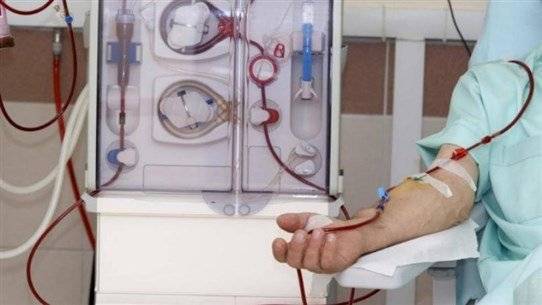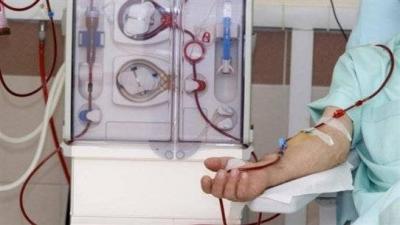The political and monetary authorities have been handling the "time bombs" planted under the pharmaceutical and healthcare sectors in the same way since the onset of the crisis: by "extending the fuse." Whenever the "spark" of citizens' complete inability to secure even the simplest health requirements comes close to touching the "detonator" of hospital and pharmacy bills, the fuse is extended with either a local connection or an internationally obtained one. However, the authorities’ fuses are getting shorter day by day, threatening a social explosion that will not spare anyone.
Gradually, the Ministry of Health has lifted support for all medications and medical supplies, except for those related to chronic conditions and kidney dialysis. In contrast, hospitals have liberated their healthcare dollar, pricing most of their services based on the parallel market exchange rate. The official guarantors have been unable to match these measures with an increase in coverage value. Consequently, social security benefits are calculated based on an exchange rate of 1,500 Lira for most medical services, while the State Employees Cooperative has raised its dollar rate to 6,000 Lira.
**Temporary Solutions**
In light of this reality that hinders patients' access to even the most basic medical services, the state found no solution except to "extend the fuse" through the following measures:
- At its last session on May 20, prior to its transition to a caretaker government, the government decided to request that the Central Bank pay an amount of 35 million US dollars monthly for the next four months from its Special Drawing Rights (SDR), needed to purchase medicines for chronic and cancer diseases, as well as medical supplies.
- The Ministry of Health secured a diesel grant from the Qatar Development Fund for government hospitals (34 hospitals and 14 health facilities), with 4 out of the planned 9 installments received to date.
- The Islamic Bank provided a loan of 30 million dollars to purchase medical equipment for hospitals.
- The World Bank has increased the hospital admission tariffs for patients of the Ministry of Public Health by three and a half times.
The problem with these solutions, despite their importance, is that they are not just inadequate for saving citizens and the healthcare sector, but are also temporary. The SDR advance for purchasing chronic medications will end this month. Government hospitals will lose the free diesel at the start of next year, which constitutes over 50% of their operational costs. The percentage of those receiving treatment at the expense of the Ministry of Health rose from 48% to 70% due to tariff support, increasing the burden on the ministry, especially when its budget has fallen to just 10 million dollars from 330 million.
Perhaps the most serious concern regarding the "short fuses" of the authorities is the delayed payments for fully supported kidney dialysis sessions at hospitals by the guarantors and the Ministry of Health, which could last a year. In Lebanon, there are about 4,800 patients undergoing dialysis, costing approximately 80 billion Lira monthly, which equates to 1 trillion Lira annually. With the deteriorating financial conditions of hospitals, especially the private ones, this delayed payment represents a "real challenge to the ability to continue providing services," according to the head of the Lebanese Private Hospitals Syndicate, Mr. Sleiman Haroun. "Hospitals pay the suppliers of treatment tools and other suppliers immediately and in dollars." This strains hospital budgets and threatens to reduce the value of funds over time due to "currency devaluation," in Haroun's words. The 1 trillion Lira that was equivalent to 37 million dollars at the end of 2021 is now worth only about 26 million, with the possibility of further decrease by the end of the current year.
Unlike other patients who bear treatment cost differences in cash at an exchange rate equal to 90% of the parallel market rate, dialysis patients do not pay anything. Consequently, the cost of this treatment for hospitals becomes "burdensome," according to Haroun. This includes not only the tools used during sessions but also providing electricity to operate devices, heating and cooling systems, worker salaries, equipment consumption, and many other side costs that are not recorded in the tariff.
If this pattern of interaction continues, many hospitals will find themselves forced to close their dialysis departments and stop providing this service, at least if they depend on the guarantors. This would jeopardize the lives of thousands of patients, especially considering the inability of other hospitals to accommodate patients beyond their capacity and the difficulty of transporting patients between districts and governorates.
**The Solution Exists... But!**
These serious threats to patients have not concerned those responsible in the healthcare sector, even though the solution could be simple. In addition to the need to adjust the tariffs, all that is required according to Haroun is:
- To expedite payments to hospitals for kidney patients. This can be done by separating dialysis bills from other bills and paying them monthly, especially since patients bear no additional costs.
- Request banks to liquidate the value of checks paid by the guarantors immediately and without holding them in accounts, allowing for payments to suppliers who refuse to accept checks.
The proposed solutions are not burdensome; why the delay in adopting them remains a question without an answer to this day, despite the serious threat facing dialysis patients.
The predicament the authorities have placed kidney patients in extends to all patients if we broaden the scope. Before the complete lifting of subsidies on fuel and medications, the healthcare dollar made up 63% of market price. With the removal of subsidies, the dollar now equals or is 10% lower than the market rate, as very few expenses still get paid in Lira, such as worker salaries, while other expenses have been dollarized. Here lies the deep-rooted problem. Neither the guarantors can bear these costs in any way, nor can citizens who earn limited incomes in Lira afford to enter hospitals. "We feel and experience this reality daily in a painful manner," Haroun says. "There are patients dying in their homes because they cannot access hospitals. This humanitarian and social tragedy is reflected in a decrease in hospital occupancy rates to 50% compared to 80% before the crisis. Patients, according to Haroun, no longer enter hospitals unless it's a matter of 'last breath.' They cannot secure medications for chronic conditions such as heart and diabetes medications, which can have serious health repercussions.
The only solution to rescue the healthcare sector lies in two matters: international aid and starting to address the repercussions of the financial crisis. In both cases, Haroun emphasizes that "there are no aids or loans for the private sector before Lebanon signs an agreement with the International Monetary Fund and implements the reform conditions." Will the authorities respond before the country turns into a giant graveyard?




